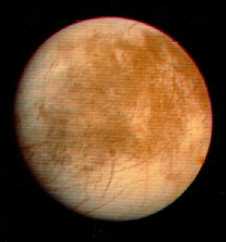Europa has an icy surface, but is there an ocean underneath?
Click on image for full size
Courtesy of NASA
Oceans on Europa?
News story originally written on August 26, 2000
A new study has evidence that Jupiter's moon Europa is full of salt water. Previous
studies have indicated that the surface of Europa is ice. Scientists were wondering what
was underneath this ice. With the help of the Galileo spacecraft, we may finally have the answer.
It all started when Galileo found a magnetic pole on Europa. NASA sent the spacecraft
back for another look, and data shows that the pole moves every few hours. Scientists say this
movement is most likely caused by salt water.
Scientists are hoping the Europa orbiter can finally prove their theory when starts
its journey in 2003. Until then, we will still speculate that water exists on this cold moon.
If water does exist, then there is a good chance that life is there as well.
"After Mars, (Europa is) the most attractive extraterrestrial environment within
our solar system in which to seek evidence of past or present life," on scientist
wrote.
You might also be interested in:
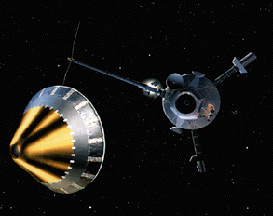
The Galileo spacecraft was launched on October 19, 1989. Galileo had two parts: an orbiter and a descent probe that parachuted into Jupiter's atmosphere. Galileo's primary mission was to explore the Jovian
...more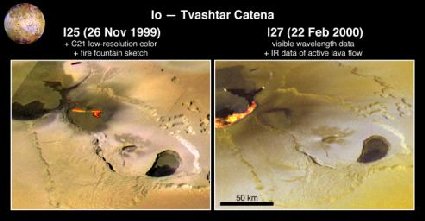
The Galileo spacecraft was launched in October 1989, aboard the shuttle Atlantis. Galileo has been orbiting Jupiter for more than five years and it is still going strong! "We're proud that this workhorse
...more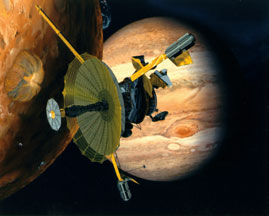
The Galileo spacecraft, which has been orbiting Jupiter since 1995, has finally reached the end of its road. On September 21, 2003, Galileo will make a fiery plunge into Jupiter's atmosphere and be vaporized.
...more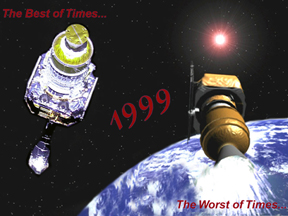
It was another exciting and frustrating year for the space science program. It seemed that every step forward led to one backwards. Either way, NASA led the way to a great century of discovery. Unfortunately,
...more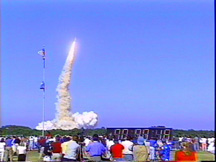
The Space Shuttle Discovery lifted off from Kennedy Space Center at 2:19 p.m. EST, October 29th. The sky was clear and the weather was great as Discovery took 8 1/2 minutes to reach orbit for the Unitied
...more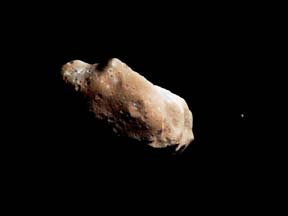
A moon was discovered orbiting the asteroid, Eugenia. This is only the second time in history that a satellite has been seen circling an asteroid. A special mirror allowed scientists to find the moon
...more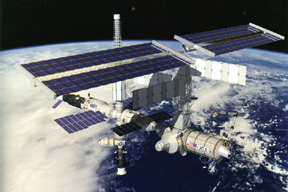
Will Russia ever put the service module for the International Space Station in space? NASA officials are demanding an answer from the Russian government. The necessary service module is currently waiting
...more


